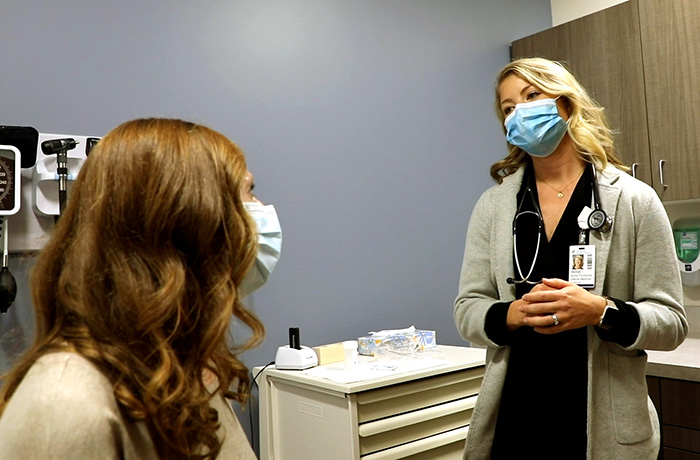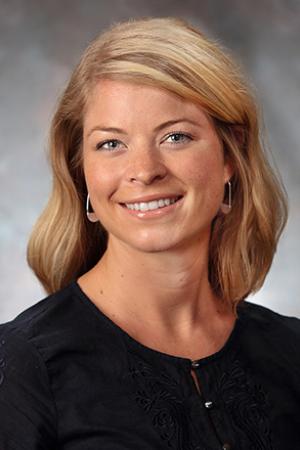
It’s estimated that between 5 and 6 million women in the United States have a hormone disorder called polycystic ovary syndrome (PCOS). PCOS is the most common endocrine condition for women of childbearing age, and it is the most common cause of infertility. But despite how prevalent this condition is, many people are not aware of it. In fact, many women don’t even know they have it.
“PCOS impacts a woman’s long-term health,” says Hannah Clark, nurse practitioner at Holland Hospital Women’s Specialty Care. “A PCOS diagnosis can be linked to a higher risk of obesity, cardiac disease, diabetes, depression and other mood disorders.”
What is polycystic ovary syndrome (PCOS)?
PCOS occurs when the ovaries produce higher levels of male sex hormones call androgens, which are typically present in women in small amounts. This prevents the ovaries from producing enough of the hormones necessary for ovulation, resulting in many small sacs of fluid called cysts forming what doctors call a “string of pearls'' along the outer edge of the ovaries.
While symptoms typically start around the same time as a woman’s first period, sometimes they don’t begin until years later. These may include:
- Irregular periods
- Male-pattern hair growth or baldness
- Acne
- Weight gain
- Infertility
How is PCOS diagnosed?
If someone has symptoms like abnormal hair growth or irregular periods, doctors can conduct an ultrasound and blood tests to confirm a PCOS diagnosis. An ultrasound will show the presence of multiple ovarian cysts while a blood test will show elevated levels of androgens.
Managing and treating PCOS
“There is no cure for PCOS, but there are certainly ways to manage the symptoms,” said Clark. Lifestyle changes can help you lose weight, while medications like metformin can help lower androgen hormone levels. Birth control can also help to regulate your menstrual cycles, lower androgen levels and reduce acne.
Where can I learn more?
If you’re worried about irregular periods, if you have any of the symptoms of excess androgen or if you are having trouble getting pregnant, The experts at Holland Hospital Women's Specialty Care can provide specialized support. Call for an appointment.
